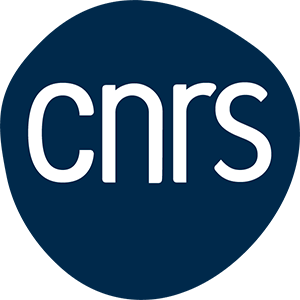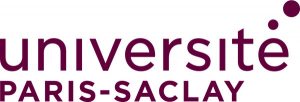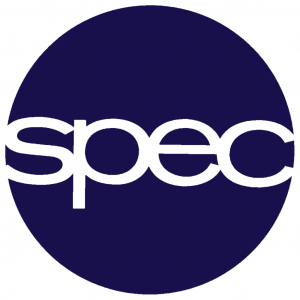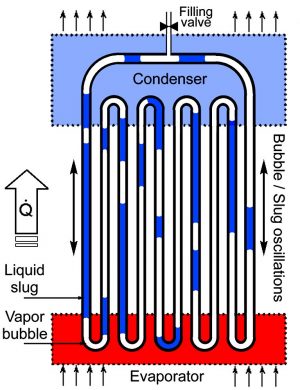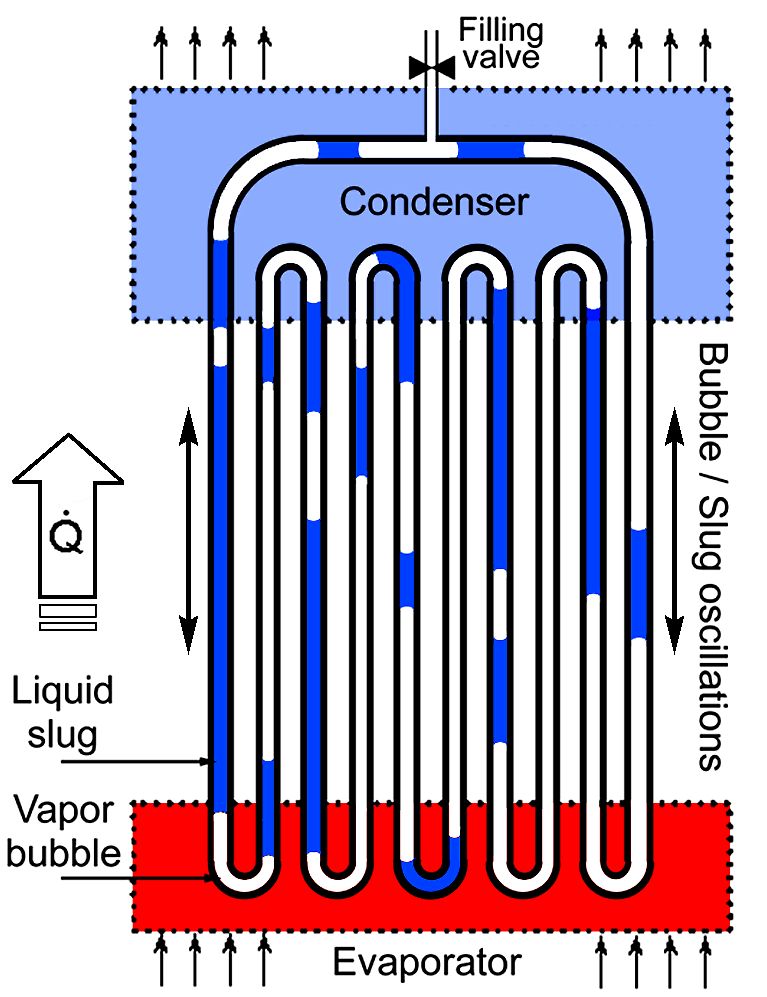
Location: SPEC/SPHYNX, CEA Paris-Saclay
Date of start: 2022, as soon as possible. Duration: 18 months
Employer: CEA – Alternative Energies and Atomic Energy Commission, France
Criteria of the candidate selection: We are looking for a person knowledgable of the two-phase heat transfer (heat pipes, boiling, evaporation, condensation, etc.), having a solid experimental background and willing to apply his/her knowledge also to the numerical studies.
This work falls within the scope of the research program on pulsating heat pipes (PHP) led at CEA. A heat pipe is a device for transferring the heat from a heat source to a cooler located at a certain distance. It is a sealed tube containing liquid and gas phases of a pure fluid. The liquid is vaporized at the hot tube portion (evaporator) and the energy is stored as the latent heat of the liquid-vapor phase change. The vapor is then transported to the cold tube part (condenser) and released there during the inverse phase change. The pulsating heat pipe (PHP) is a capillary tube without any internal structure bent so that it meanders between condenser and evaporator. It is filled partially by a pure liquid. Spontaneous oscillating slug-plug flow appears in such a system when the difference of temperatures of evaporator and condenser exceeds a threshold. Due to the dynamic functioning, the PHP turns out to be in many respects more efficient in comparison with the other types of heat pipes where the evaporating interfaces are immobile (similarly to the convective boiling cooling efficiency compared to the pool boiling). The code CASCO (Code Avancé de Simulation de Caloduc Oscillant meaning Advanced PHP Simulation Code in French) has been developed at the CEA as a PHP design tool. It has a user interface.
The postdoctoral fellow will be responsible for finalizing of the existing PHP experiment. The main tasks include sealing, development of the filling system, of the data acquisition, synchronization of the fast cameras, tests. The numerical part of the work is less complicated. It consists in setting up the input data files for CASCO, launching it, and processing the output data files with the CASCO back end software.
The PhD student will benefit from the dynamic environment of the laboratory (interaction with high level scientists, possibility of attending numerous classes, lectures and seminars on the Paris-Saclay university campus. The work will be done in the framework of the project TOPDESS of the ESA in collaboration with several French, Italian and British universities. The project is linked to the “Space PHP” experiment that will be implemented on the International Space Station.
Contact and submisison of your application to: Vadim Nikolayev (see homepage), email: vadim.nikolayev(a)cea.fr

